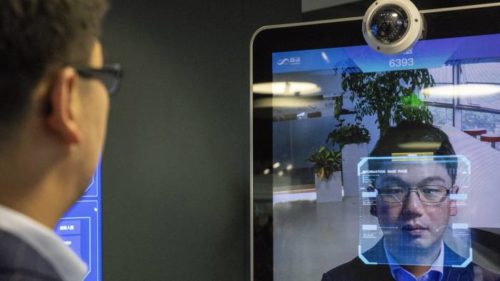China’s SenseTime sells out of Xinjiang security joint venture

Financial Times, 16 April 2019
 By Christian Shepherd One of China’s leading artificial intelligence start-ups, SenseTime, has sold out of a security joint venture in Xinjiang after an international outcry over the surveillance and mass detention of local Uighur people in the far-western Chinese region.
By Christian Shepherd One of China’s leading artificial intelligence start-ups, SenseTime, has sold out of a security joint venture in Xinjiang after an international outcry over the surveillance and mass detention of local Uighur people in the far-western Chinese region.
SenseTime, a facial recognition software company that supplies Chinese police, set up a “smart policing” company with Leon, a major supplier of data analysis and surveillance technology in Xinjiang, in November 2017.
It has now sold its 51 per cent stake in the joint venture, Tangli Technology, to Leon, which said Tangli would continue with its strategy and that its research team had mastered key technologies.
A previously unreported statement, released at the end of last month, said SenseTime had decided to sell for “reasons relating to SenseTime’s own development”.
SenseTime’s international backers include Fidelity International and Qualcomm, and analysts said it may have been wary of putting off foreign investors as it plans for an IPO. The company announced a partnership with Massachusetts Institute of Technology last year.
Beijing has faced criticism from human rights groups, international bodies and western governments over its behaviour in Xinjiang, where the government has built a network of extra-legal internment camps that hold an estimated 1.5m Uighurs and is monitoring the movements of the local population with facial recognition cameras.
SenseTime’s decision to step back from the joint venture marks the first time a major Chinese technology has opted out of operations in the region.
A spokeswoman for SenseTime, which has its headquarters in Hong Kong, said the move was part of a strategy review and that the company “no longer works with Leon and barely has any business in Xinjiang”.
Police in Xinjiang have deployed mobile phone scanners, security cameras with facial recognition and big data software designed to generate lists of “untrustworthy” people based on their behaviour. A recent data leak suggested that authorities are closely tracking the locations of individuals in the region on a grand scale.
Platforms being rolled out across the region that integrate data streams being collected can, for example, flag individuals of interest to the police based on criteria such as having relatives abroad, wearing traditional Islamic clothing or having submitted petitions complaining about the government.
Such lists are then used to select people to stop and search or interrogate at numerous police checkpoints in the region’s cities and on its roads.
US lawmakers, led by Republican Marco Rubio, an influential China hawk, have taken a tough stance on US investment funds backing Chinese technology companies deemed to have “problematic” ties with Chinese police, intelligence or military. Large funds have pulled out of investments in Hikvision, a security camera and surveillance technology company.
China has defended its camps in Xinjiang, saying they provide “vocational training” and that the measures are necessary to fight “terrorism, separatism and religious extremism” in the region.
Universities in the US, Australia and the UK have also pulled back from working with Chinese technology companies. MIT recently cut ties with Chinese telecoms groups including Huawei and ZTE after the US government accused the companies of stealing US technology and breaking US sanctions against Iran.
https://www.ft.com/content/38aa038a-5f4f-11e9-b285-3acd5d43599e

